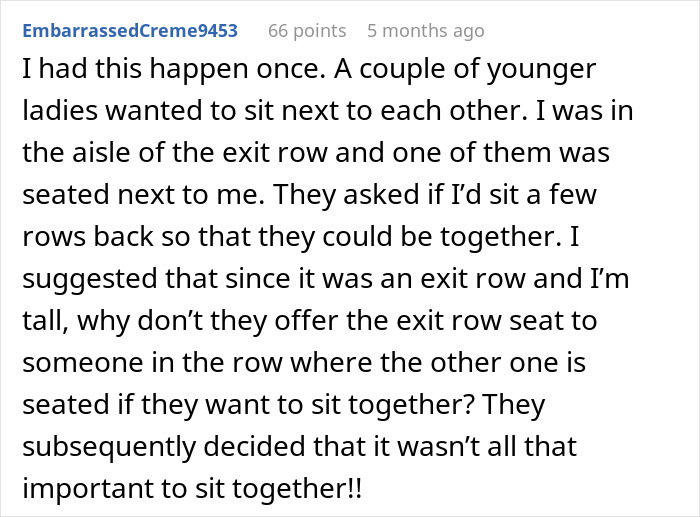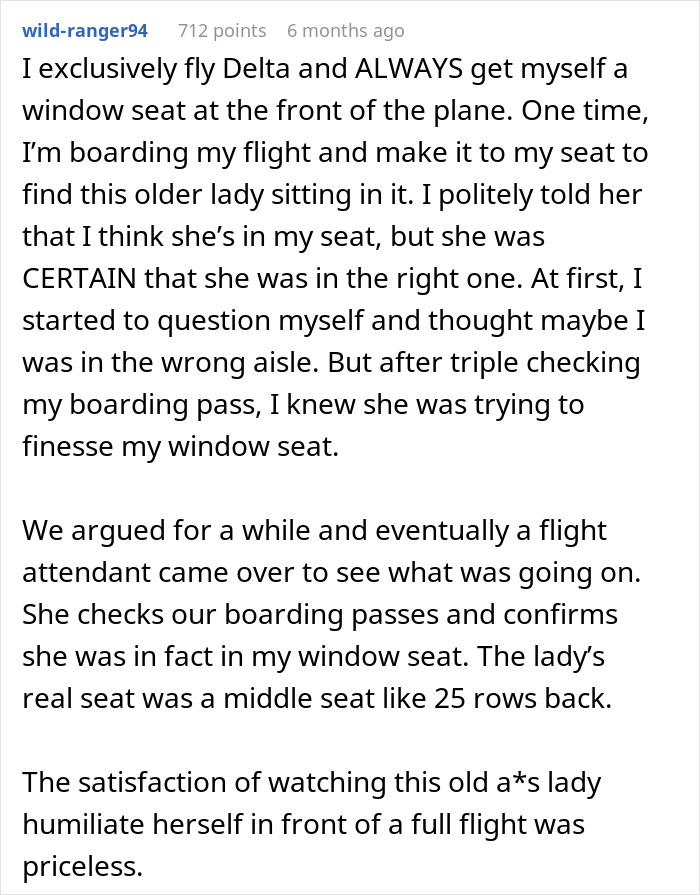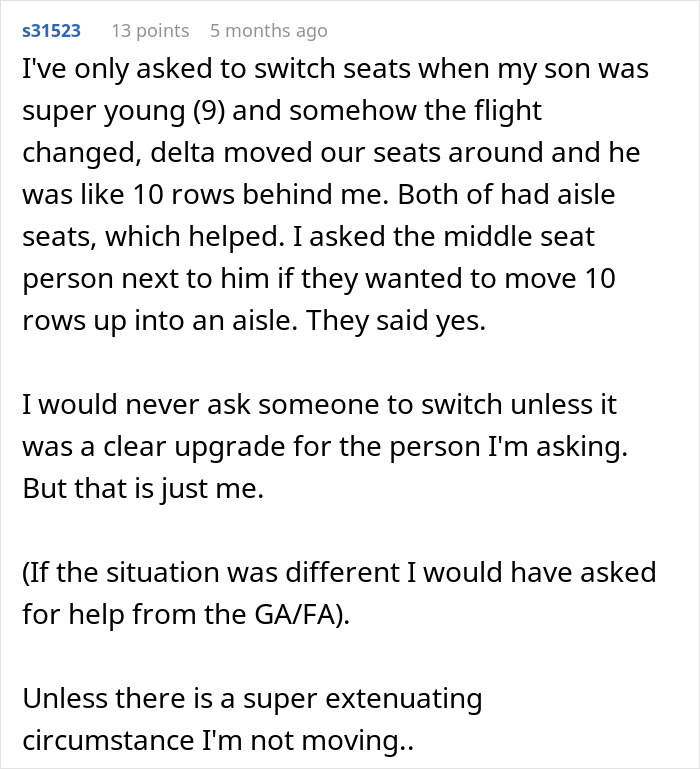When you ask someone to swap seats on a flight, it usually ends one of two ways: they agree or they don’t. But when someone says no, why do we suddenly act like they’ve committed a federal crime? The guilt-tripping, the dramatic sighs, the side-eyes: it’s a whole performance.
That’s exactly what one woman experienced when she decided she’d had enough of being a people pleaser. She politely declined to give up her aisle seat, and let’s just say… emotions ran high. Curious how it unfolded? Keep reading for the full story and the very relatable aftermath.
Choosing your preferred seat on a flight can come with a hefty price tag
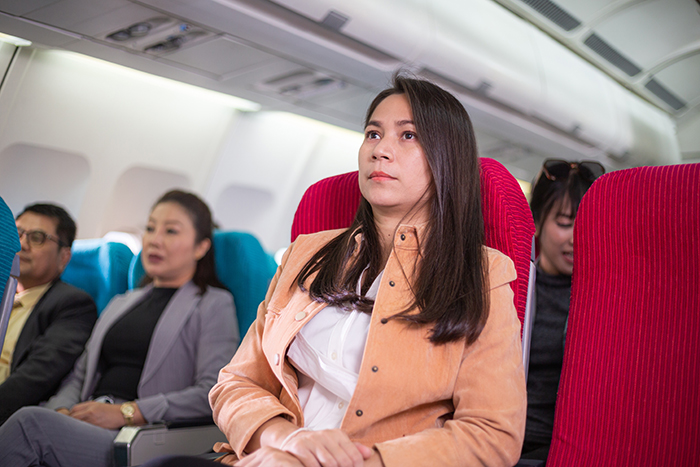
Image credits: winnievinzence / envato (not the actual photo)
One woman shared her experience of being shamed for simply refusing to give up her seat
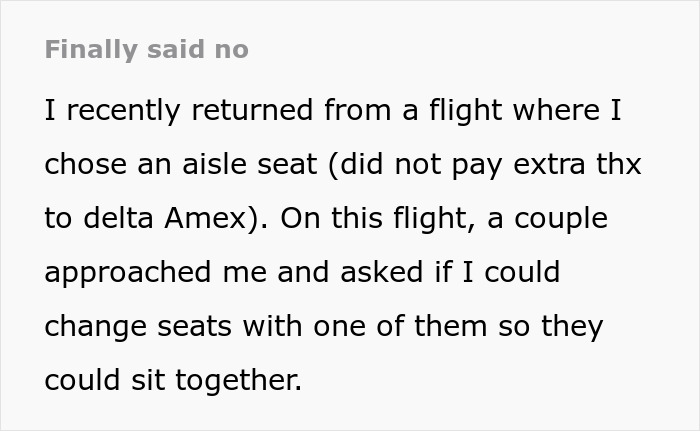
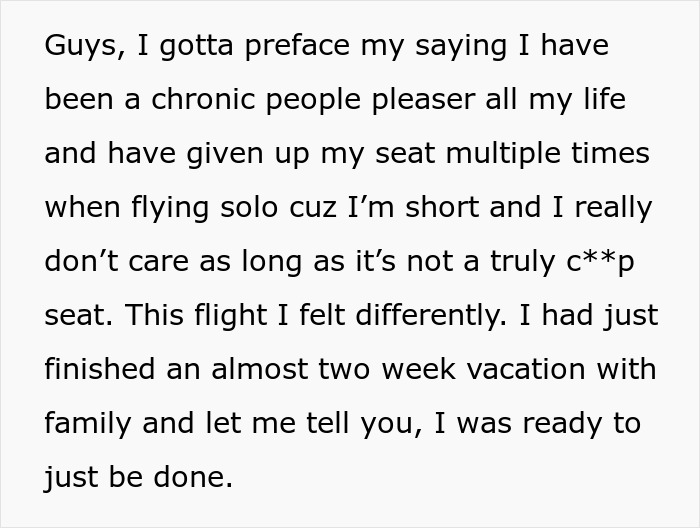

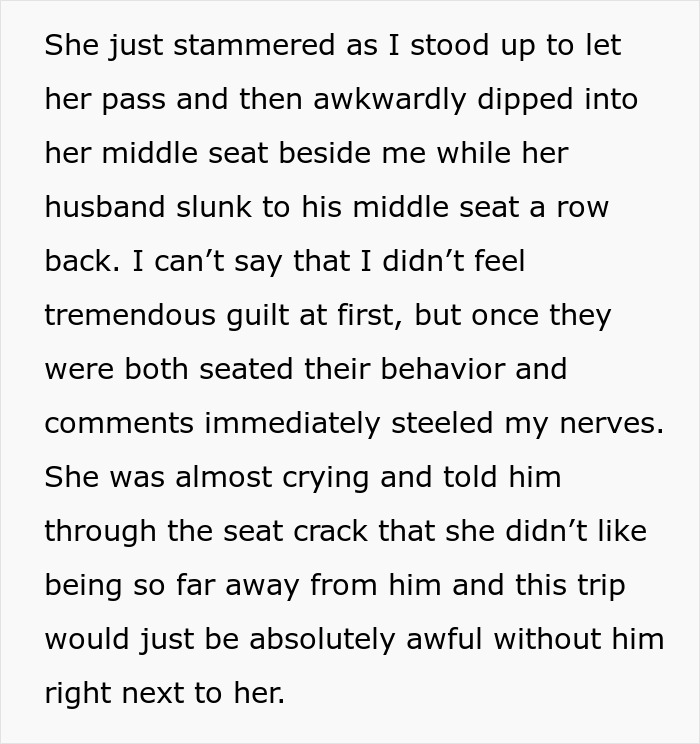

Image credits: stockbusters / envato (not the actual photo)
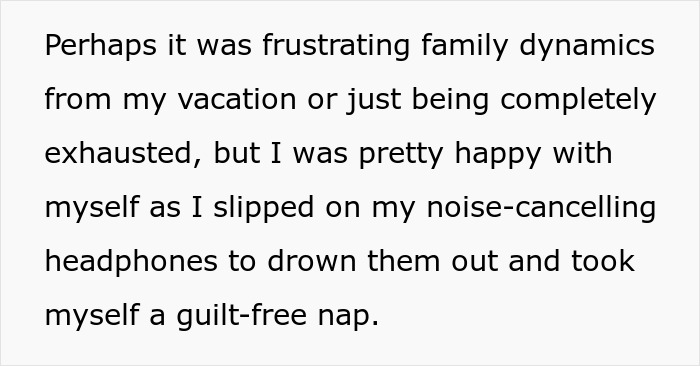
Image credits: SilentExplanation844
The author went on to share more details about the situation
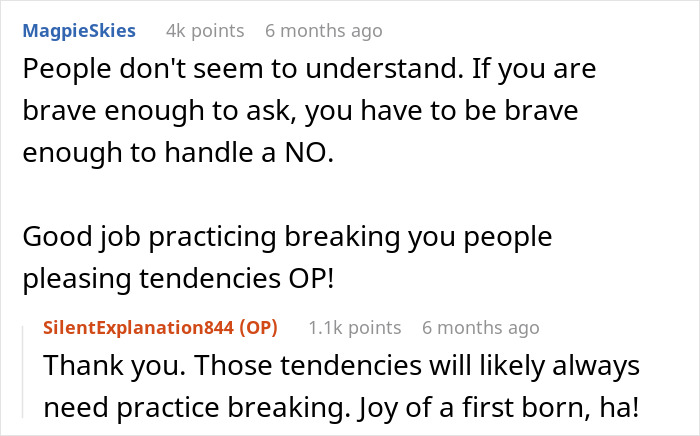


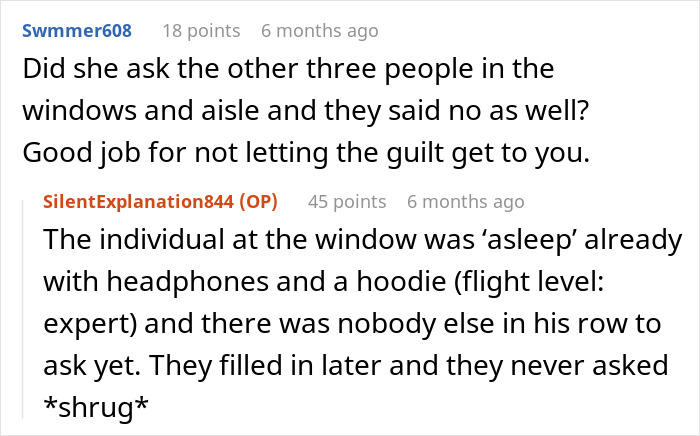
Many passengers opt not to pay extra for a specific seat in an effort to save money
Millions of people fly every year, and let’s face it: tickets aren’t cheap. Whether it’s a short domestic hop or a 10-hour red-eye across continents, we all try to stretch our travel dollars. That usually means skipping on extras like seat selection or legroom upgrades. Sometimes you find yourself squeezed into a middle seat or beside the lavatory, but hey, that’s the price of saving a few bucks. It’s part of the trade-off for budget-conscious travel.
Now, if you’re traveling with someone and your seats aren’t together, asking a fellow passenger to swap is perfectly reasonable—as long as it’s done politely. A lot of people are understanding, especially if you’re swapping a middle for another middle or something fair. But when the swap involves someone giving up a paid aisle or window seat for a cramped middle, the dynamics change. Courtesy goes both ways.
The problem? Expecting someone to give up their seat like it’s an obligation. When that person declines, they’re suddenly the bad person. Guilt-tripping someone into switching is not only unfair, it’s entitled. You never know what someone went through to get that seat: they may have anxiety, joint pain, or simply booked early for comfort. Their no isn’t rude, it’s valid.
Airplane etiquette is its own little ecosystem, and knowing the unwritten rules can save everyone a lot of stress. From boarding to deplaning, small acts of consideration go a long way. After all, you’re stuck in a metal tube 30,000 feet in the air with strangers; being civil isn’t optional, it’s essential. Respect makes the flight smoother for everyone, even if the Wi-Fi doesn’t work.
One classic example is the ongoing battle over armrests. Who gets what? Middle-seat passengers already drew the short straw, give them both armrests. Window passengers get the view, aisle passengers get easy access. That’s the unspoken code of economy class peacekeeping. Violate it, and you’re instantly that passenger no one wants to sit beside.
Another rule that often gets broken? How passengers treat the crew. Flight attendants are not personal servants, they’re trained professionals responsible for your safety. Yelling at them over a drink order or flight delay isn’t just rude, it’s dehumanizing. They’re working long shifts, often through multiple time zones. A kind word or patient tone can make a real difference.
Disregarding the comfort and choices of fellow passengers is often seen as inconsiderate behavior
Noise etiquette also plays a huge role, especially on long-haul flights. It’s fine to chat, but keep your voice down. Use headphones for movies and music. Avoid speakerphone calls or playing games without muting the sound.
And let’s not forget the overhead bin saga. Space is limited, and hoarding it with unnecessary extras is a huge no-no. Use a personal item and one carry-on like the rules say. Putting jackets, shopping bags, or your third backpack in the bin only creates chaos when others board. In a fully booked flight, sharing bin space fairly is one of the easiest ways to be a courteous traveler.
Reclining your seat is a luxury but it comes with responsibility. Leaning back without checking who’s behind you can ruin someone’s flight. You could spill their drink, crush their laptop, or give them zero legroom. If you plan to recline, do it slowly and glance back first. It’s the difference between relaxing in comfort and accidentally starting a midair feud.
In general, don’t be that passenger, the one others write posts about. Whether it’s hogging shared spaces, being loud, or ignoring basic decency, inconsiderate behavior has no place on a plane. The flying experience is already stressful. A little empathy, a bit of awareness, and some patience make the journey better for you and everyone else.
In the story that sparked this discussion, the woman didn’t do anything wrong. She politely declined a seat swap and held firm, even when guilted. In fact, she exercised a healthy boundary, something we should normalize. But what do you think? Is it selfish to say no, or is standing your ground just part of self-care while flying?
Many people called out the couple, saying they came across as entitled

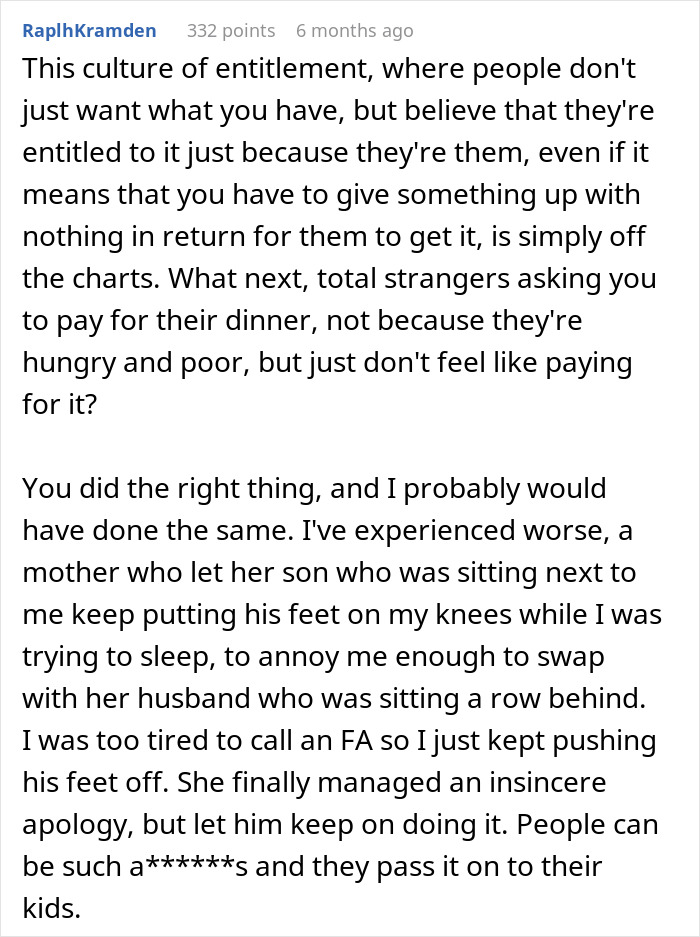







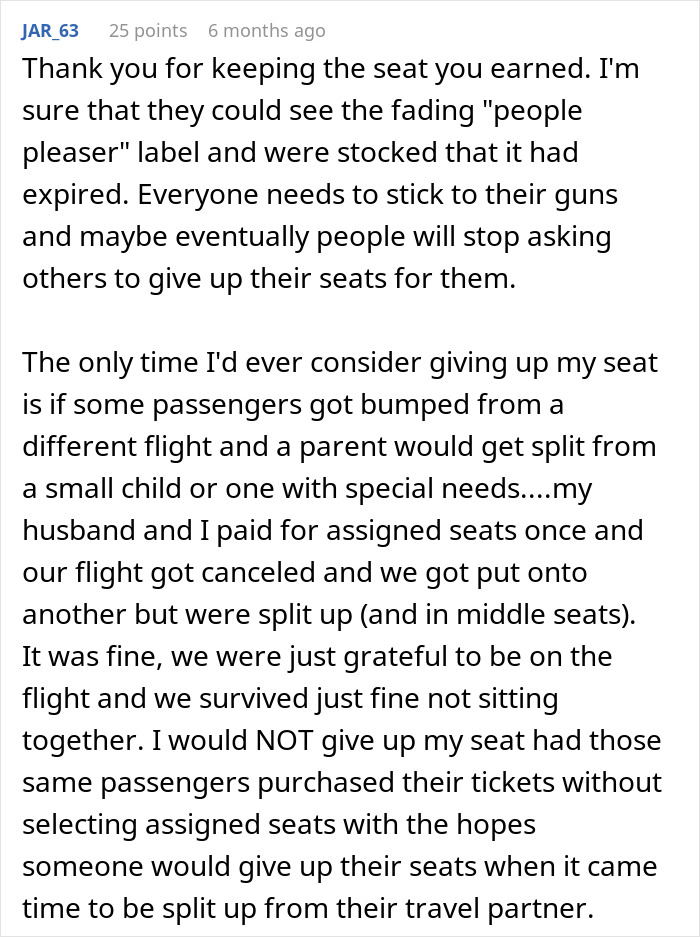
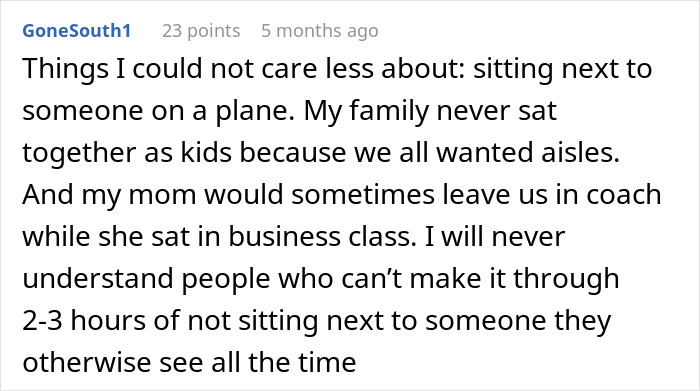


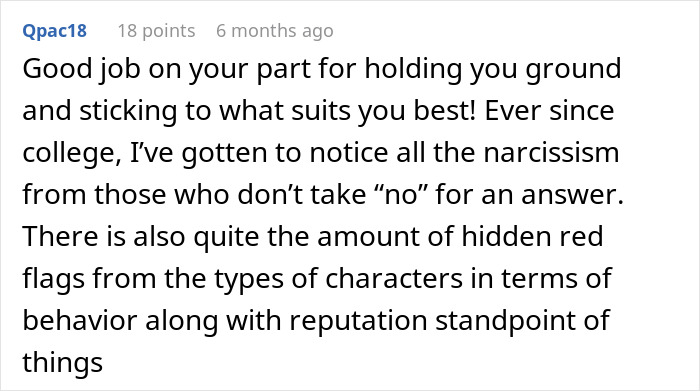

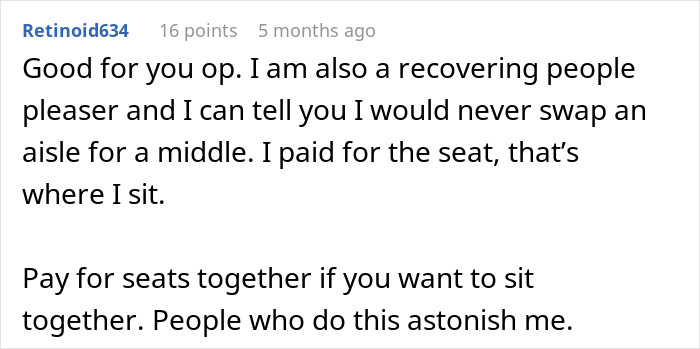
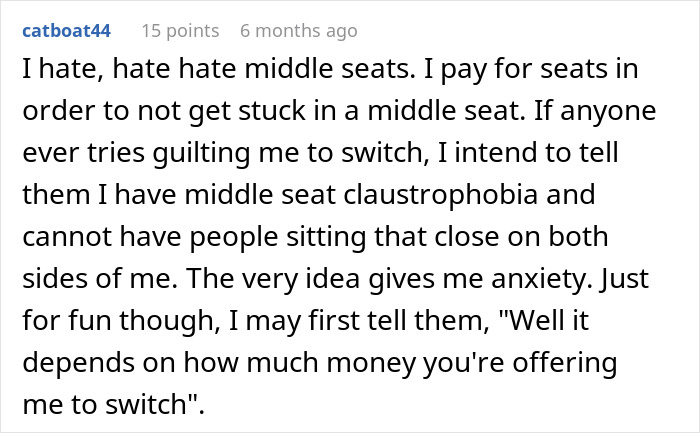




Others felt the woman was simply being petty
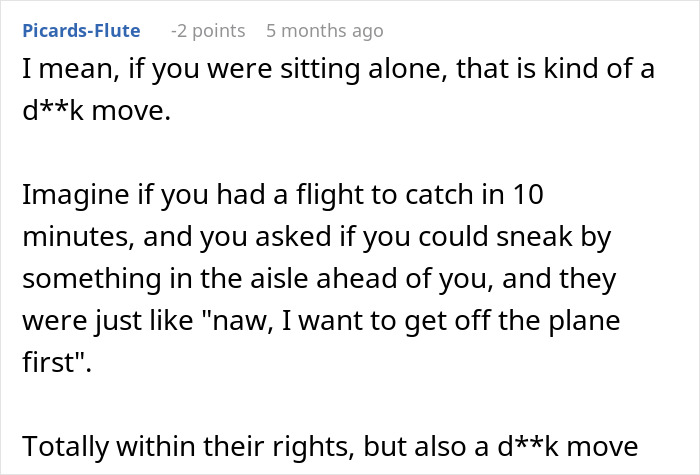
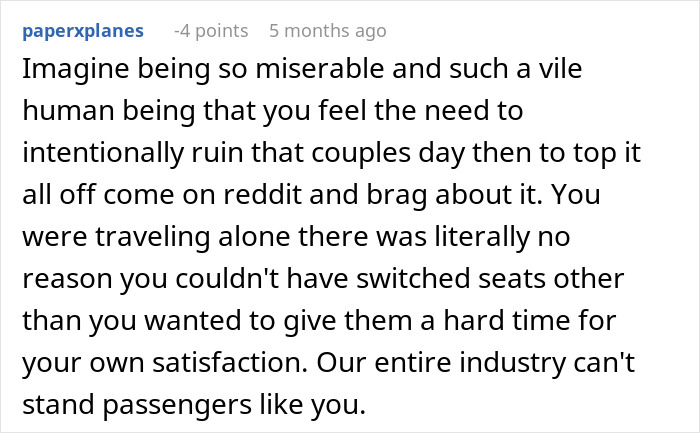
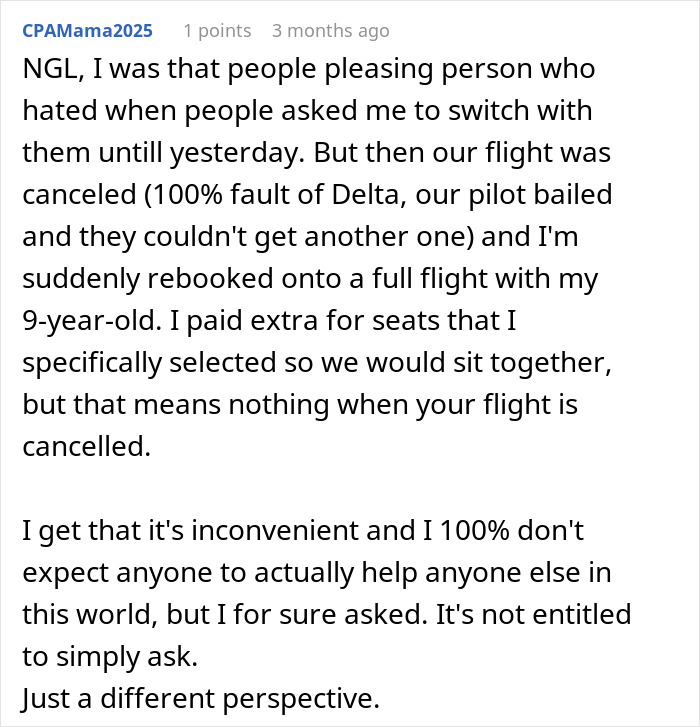

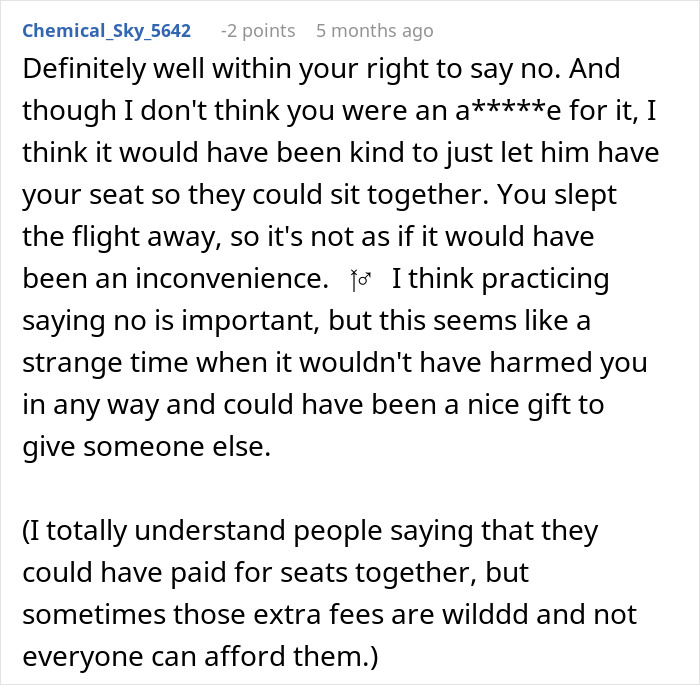

Some even shared similar experiences and their own opinions on seat switching
